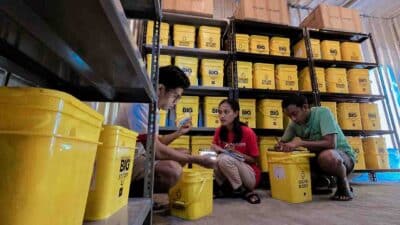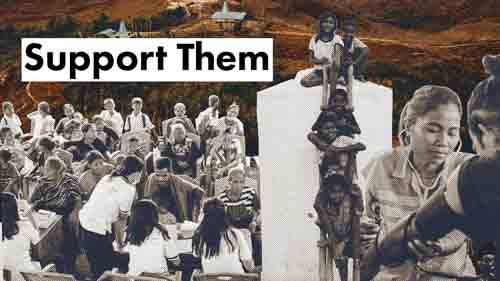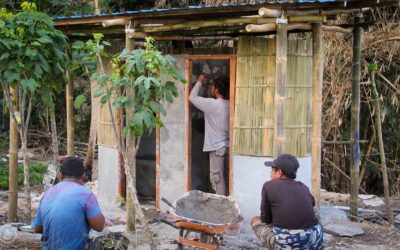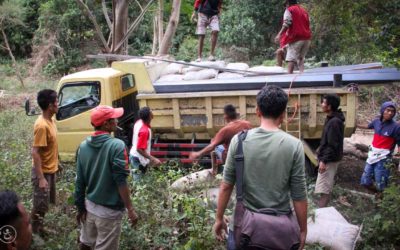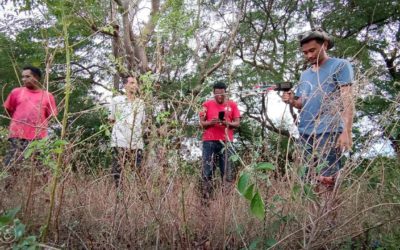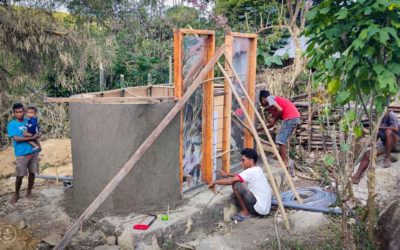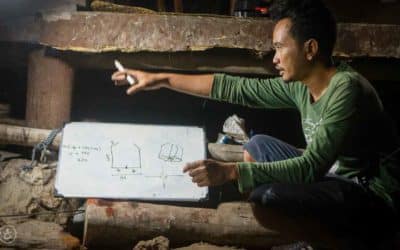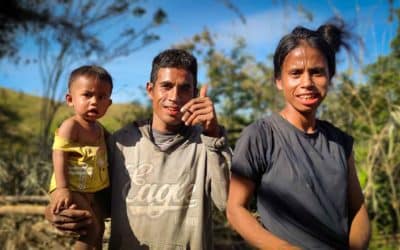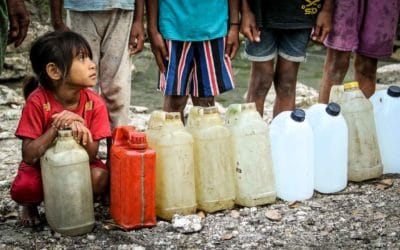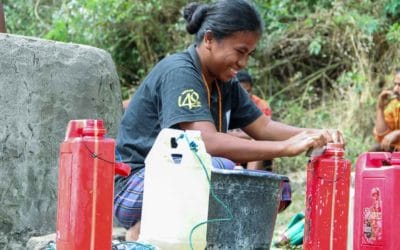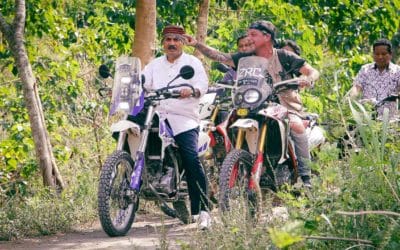To reach ultra-rural villages, we rely on the Truck of Life to navigate rough, broken roads. This vehicle allows us to deliver essential supplies, including medicines, water, tools, solar kits, and food. Logistics play a crucial role in our program; without access to fuel, spare parts, and the commitment to long days on the road, we would be unable to reach the patients in need.
Donate
Support Care
Programs
All projects
Quick News
Field updates
Stories
Field stories
Welcome to the Fair Future News! Our teams have crafted each article, story, and update.
These pages showcase unique content reflecting our mission, work, and community interactions.
True stories. Real people. Humanitarian action in motion.
Here you’ll find stories from the field—100% real, 100% original. Every article is written by us, by those who live these moments, walk these roads, and treat these illnesses. We write them by hand, after the long days, often from tents or remote villages, because we believe in showing what’s real.
The people, the lives, the wounds, the repairs—this is not fiction. This is our daily reality in ultra-rural Indonesia. Every photo is taken by us. Every word comes from those who act. From emergency responses and clean water to child health and malaria cases, these stories reflect both the daily struggles and the incredible strength of those we serve.
Our News page is more than just updates. It’s a record of direct action. A collection of emotions, medical cases, construction progress, and social encounters. We don’t write for clicks—we write for those who care, those who want to know, and those who support our mission.
It’s raw, human, sometimes difficult, but always true. Read them, share them, let them move you. This is how change begins—with knowledge, emotion, and connection.
Alex Wettstein – Fair Future Foundation – Updated in June 2025
Your donation becomes real medical care
Help us reach the unreachable. Every franc you give funds medicines, dressings, tests, and clean water to prevent sickness. It powers solar lights for cold vaccines and night care. It keeps Kawan Sehat agents and Fair Future teams travelling hours to remote villages without doctors or clinics.
Our latest articles
The 1st toilets of the village are almost finished
Sanitary facilities, showers, toilets, a wastewater collection tank… This was a pilot project for the foundation. Today it is something normal. How do we build healthy, ecological, environmentally friendly sanitary facilities using mainly local materials (apart from sand, iron and cement)? How not to waste the water we found by drilling so deep here in Mbinudita? Where had drilling never been attempted? How to reuse wastewater to be able to water the gardens, the plants, and the vegetables that do so much good to and improve the lives of everyone here? It was a challenge, but it is now a reality.
We need a 2nd truck
Linked among others to the Deep Well Drilling program (Water Connections), we need to acquire a small second-hand truck, to transport our drilling machine to the sites from our base camp in Sumba East. But also all building materials (sand, cement, bricks, scrap metal etc…). At the moment, we cannot do this ourselves and have to resort to renting a truck. It costs too much and handicaps us a great deal. We are appealing to your big heart, friends. Thanks in advance for your help.
Assist with access to clean water in Praiwora
As part of the #waterconnections project, the Fair Future and Kawan Baik foundations have received several requests for help related to socio-medical projects, including a significant number related to access to clean water from local communities and rural villages. Some of these requests come to us directly from local authorities in East Sumba. For this Kambajawa – Praiwora project, Fair Future received this request now from our friend, the Regent of East Sumba, Mr Khristofel Praing. Kawan Khris asked us to see what we could do to help this village and these families in Praiwora who have not had access to water for almost five years.
Truck of Life goes everywhere almost no one goes
The truck of Life is so important… It allows us to go where almost no one ever goes. To meet people who have unexpected problems. To provide medical care, to take children or even a doctor or dentist to the nearest town. Truck of Life allows us to bring equipment, food, and drinking water where no one goes while ensuring the safety of our volunteers and specialized collaborators. Indeed, hundreds of thousands of people live in the most inaccessible territories who do not have access to the most basic needs to ensure a healthy life: No access to medical care, drinking water, or a light source for children to read or study.
Building healthy sanitation facilities in rural areas
We are building safe and healthy sanitation facilities for these reasons: Ending defecation in the open rather than in toilets will have “transformational benefits” for the most vulnerable people in East Sumba. Open defecation is when people defecate in the open -for example, in fields, forests, bushes, lakes and rivers rather than toilets. We find that of the hundreds of thousands of people who practice open defecation, 91% live in rural areas. An increase in the population of the regions in which we work leads to a localized increase in open defecation.
Building a 6,500-litre Ferro-cement tank
Building a water storage tank is something simple but complicated at the same time. Working day and sometimes night too, sleeping under challenging conditions, eating little and walking a lot… This is the life of the Fair Future and Kawan Baik teams in the field, every day for months with the support and unconditional support of the villages where we are setting up a new program. We are very involved in all the constructions, be it the reservoirs but also the healthy sanitary installations, the water connections, the filtration systems, and so many other things which, put together, create infrastructures which make them more useful, simpler life.
Clean water and sanitation for a magic trick
For a few months -thanks to the Water Connections program–, the families are feeling healthier, happier and have much more energy. The villagers, who are 100% farmers, are much less sick, and they are in better health. Vegetable gardens are created, and an economy is built. Women and children spend much less time fetching water from wells far from homes. As a result, children spend more time in school, and adults have more time to do things they couldn’t do before. On the other hand, water remains the absolute priority of each of the 250 families of #mbinudita, well before everything else! Today, we are building healthy sanitary facilities for the village and the villagers. Like all other families living in ultra-rural areas, people have never had access to toilets or a place to bathe or do laundry.
For the past two months, we have been on the Mbinudita site
Our teams have been on the SD Mbinudita site for two months for the Water Connections project, clean, safe and clean water for all. The Mbinudita school is the centre of life for an entire region, where more than 2,500 people live, divided into nearly 250 families, the vast majority of whom are children. The social, technical, medical and logistics staff and documentalists have been working for several months on the realization of this unique project. The Water Connections program connects groups of houses and an entire population to clean water connections, sometimes houses more than three kilometres apart from each other. This uses buried pipes, 6500-litre tanks, healthy sanitary facilities, and our boreholes. The innovation is that we mainly use gravity, iron and cement for the construction.
Lukukamaru Sumba. A tremendous job to do here
East Sumba is full of villages that I believe we have to call “very poor”, where eating or drinking enough, taking a simple shower, and earning enough to buy a little rice is almost impossible. These villages are isolated from everything and everyone. We go there as often as possible, currently every day. These moments spent with the villagers tell us very clearly about what we can put in place to improve the living conditions of these people living in these regions. Lukukamaru is one of those villages. Everything is paid for at a high price, at the cost of incredible physical and psychological effort; here, we can speak of a state of daily survival.
Shortage of clean, safe drinking water
All these people, we meet every day. When we ask them what their biggest dream is, all without exception answer us this: To have clean water, some not dangerous for their health and that of children, and pregnant women. To have access to it here, close to home. To be able to water and cultivate a garden, eat better, shower, and wash. But above all to be able to drink more, cook more. The Fair Future and Kawan Baik foundations within the framework of the Water Connections project, strive by all means to fulfil their dreams. Their lives, their health and their future are at stake. Water is the source of life, of all life!
We carried out our first deep drilling with our own machine
Until last week, the 264 students of this school in East Sumba had no water in their school. As you can imagine, this posed unexpected sanitary problems for all the children, the teachers and the houses in the surrounding area. Fair Future has therefore decided to drill a deep well at the back of the school, and we have, thanks to our detection tools, found clean and clear water at a depth of almost 40 meters. A massive change for this community and the people who live nearby. Indeed, they will also be able to come and get water from this new deep well.
Khris Praing, Bupati of East-Sumba to Mbinudita site
The Mbinudita school is now an official school, which falls within the bosom of the schools of the Indonesian state. A huge ceremony that took more than 4 days of preparation took place on June 25, 2022 on the #sdmbinudita school site. In the presence of the Regent of East Sumba, Drs. Khristofel Praing and a number of officials, we have been able to visit the facilities already in place and built as part of the clean water access project for more than 2,500 people. Doing it on a motorcycle with the Bupati was exceptional!



